Guest blog by Allison Brooks, Bee Campus USA – Randolph College Committee Member and Riley Lorson, Sustainability and Special Projects Coordinator, Randolph College
In 2016, Randolph College became the ninth educational institution in the nation, and the first in Virginia, to earn certification as an affiliate of the Bee Campus USA program. Passionate students spurred our deliberate work to support pollinators, and they have remained a driving force ever since. By pursuing pollinator conservation on campus, we have created a ripple encouraging our community to consider the role of an urban landscape within the larger ecosystem. This ripple has reached beyond campus to the City of Lynchburg, where we successfully coordinated with local garden clubs and the Department of Parks and Recreation to pursue Bee City USA certification, which Lynchburg earned in 2019.
Situated in the foothills of the Blue Ridge Mountains in central Virginia, it is no surprise that the Randolph College campus has an array of steep banks, with some nearing a grade of 50%. These challenging sites were the first areas that we transitioned to a low-mow schedule. Mowing just twice a year to control woody plants saves time and money while controlling erosion, reducing greenhouse gas emissions, and enhancing habitat for pollinators and other wildlife. After seeing how well those areas were doing, we began exploring other locations on campus that could be transitioned for habitat conservation. In 2018, we restored critical edge habitat along the forest on campus by transitioning roughly 7,500 square feet of lawn to a meadow. Students have over-seeded these various low mow areas with a native perennial seed mix to increase the floral diversity.
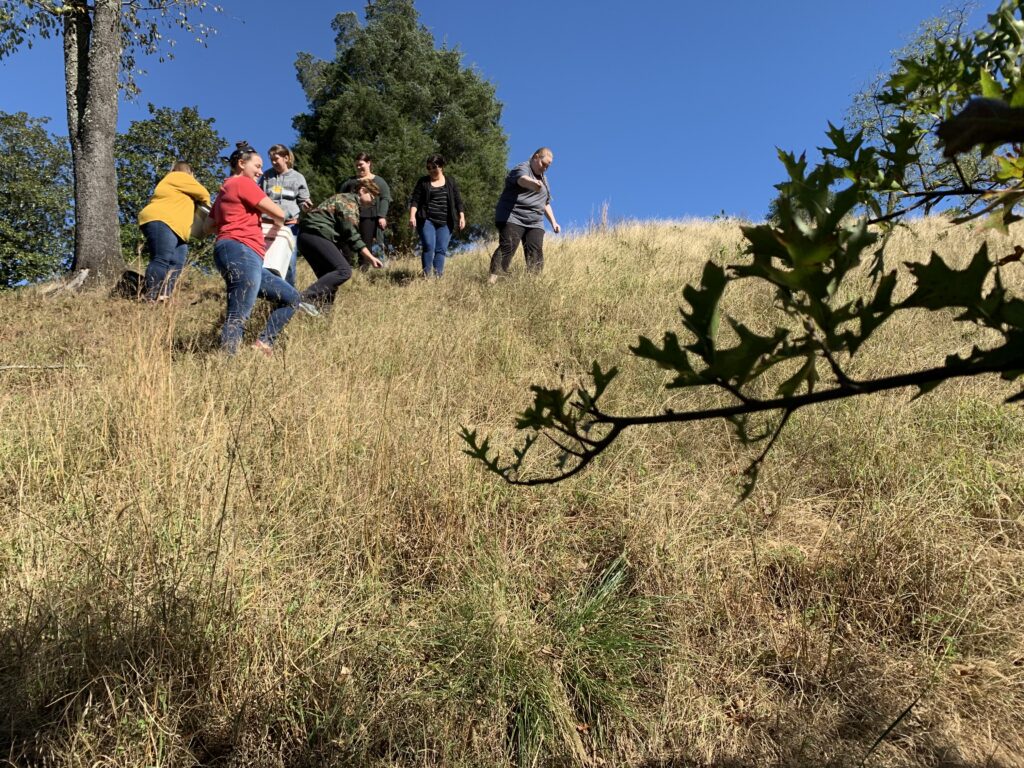
The remaining lawns on campus boast natural diversity, such as clover, false strawberry, and violets, due to eliminating herbicide application on them more than a decade ago. Additionally, we have employed an Integrated Pest Management Plan (IPM) to reduce pesticide use campus wide and have established multiple sites as entirely pesticide free including the low-mow areas. In alignment with our commitment to promote education about natural pest control and prevention methods, we have cultivated two demonstration sites: our Organic Garden and our Pollinator Garden. The Organic Garden is roughly half an acre with areas dedicated to habitat creation, community plots, and edible landscaping. It has been pesticide free since its inception around 2010, and we recently began intentionally interplanting native plants amongst the fruits and vegetables to attract beneficial insects. The process has subsequently created a more appealing garden while promoting natural pest control methods.
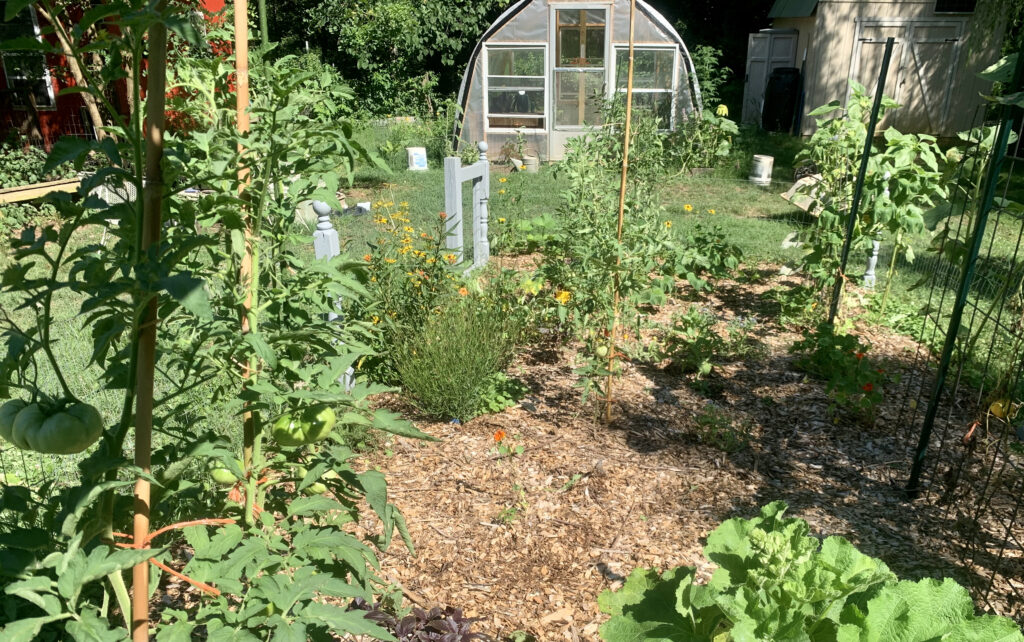
The Pollinator Garden on campus came to fruition in 2019, replacing a portion of our front lawn that was prone to seasonal flooding. An annual seed mix provided color in the first year while the native perennials established themselves. The strategy has worked well, and it has been fascinating to see the compositional changes over time, with the perennials really taking off this past year. The aspect of the space that we treasure the most is how the Pollinator Garden has become its own ambassador, demonstrating the beauty and functionality of planting for pollinators. The custom signage at the Pollinator Garden and other habitat areas on campus amplifies the role of these areas in educating visitors and passersby. We have used the signage to improve communication regarding our intentions and goals for these spaces while also connecting visitors with information and resources to help them implement their own habitat projects.
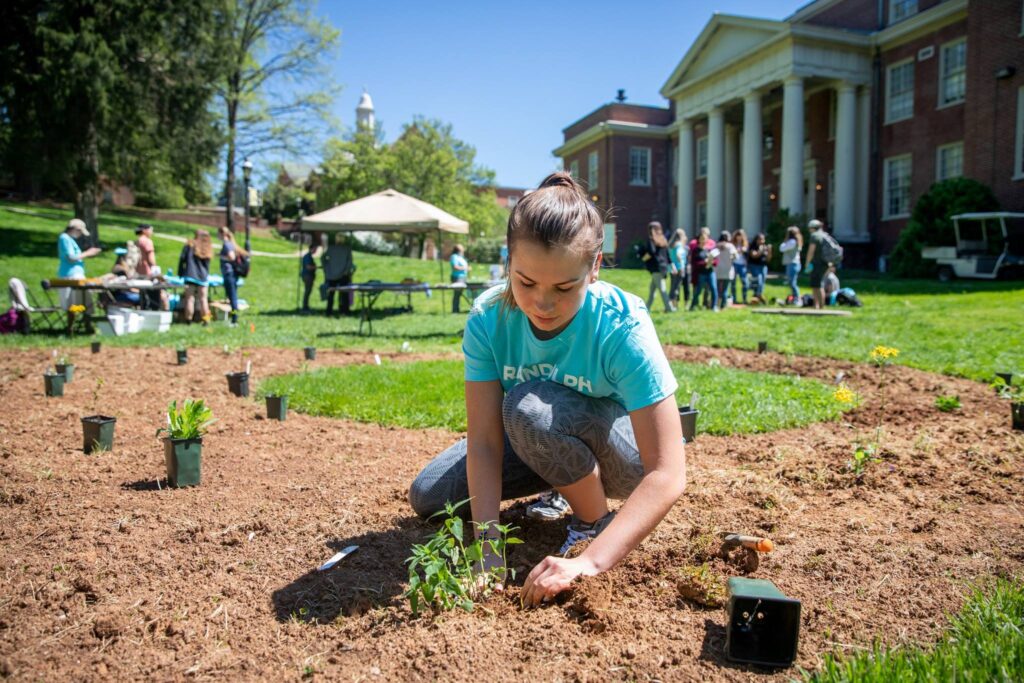
Students planted and seeded the Pollinator Garden during an Earth Day event in 2019. 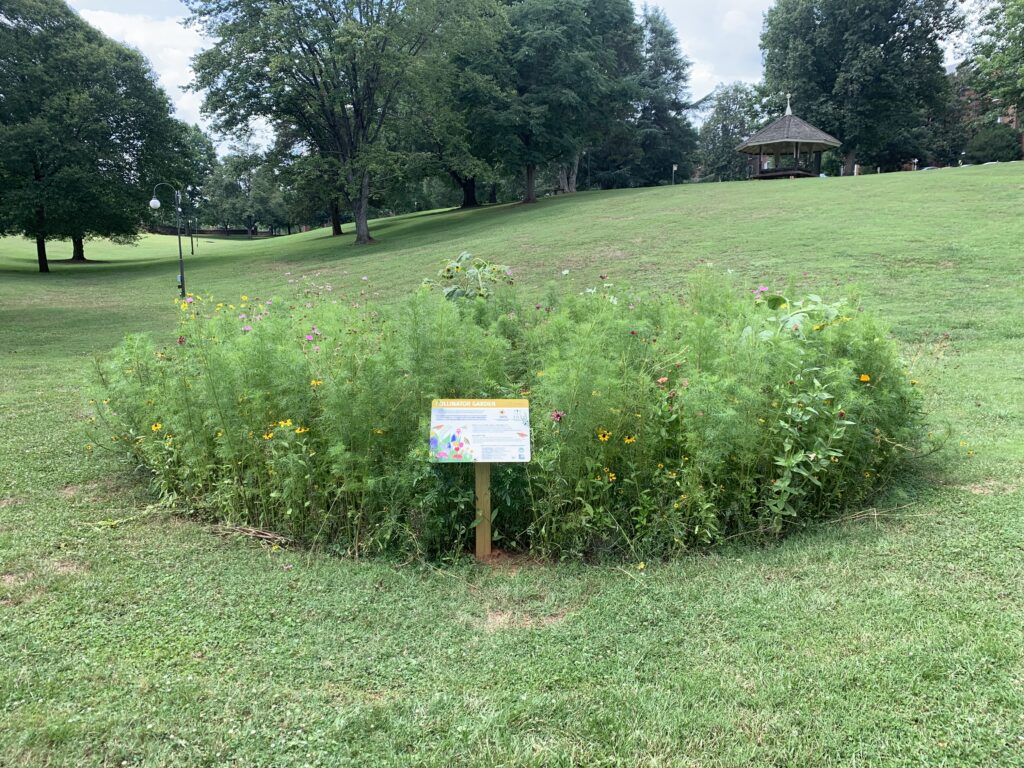
The first intentionally designed and planted pollinator habitat on campus in July 2019, just three months after planting. Annual flowers provided color while the native perennials became established.
In the spring of 2020, our campus transitioned to remote instruction due to COVID-19 and continued with the virtual format through the fall semester. To continue growing the success of our annual Earth Day celebration, we provided a livestream featuring the expansion of the Pollinator Garden, where we discussed the process of transitioning lawn to pollinator habitat, species selection, and other ways to support beneficial insects throughout the year. The great response to the livestream prompted the launch of a live webinar series on pollinator gardens and sustainable landscaping. It is our hope that sharing resources with the community will embolden them to make the shift to conserving pollinator habitats.
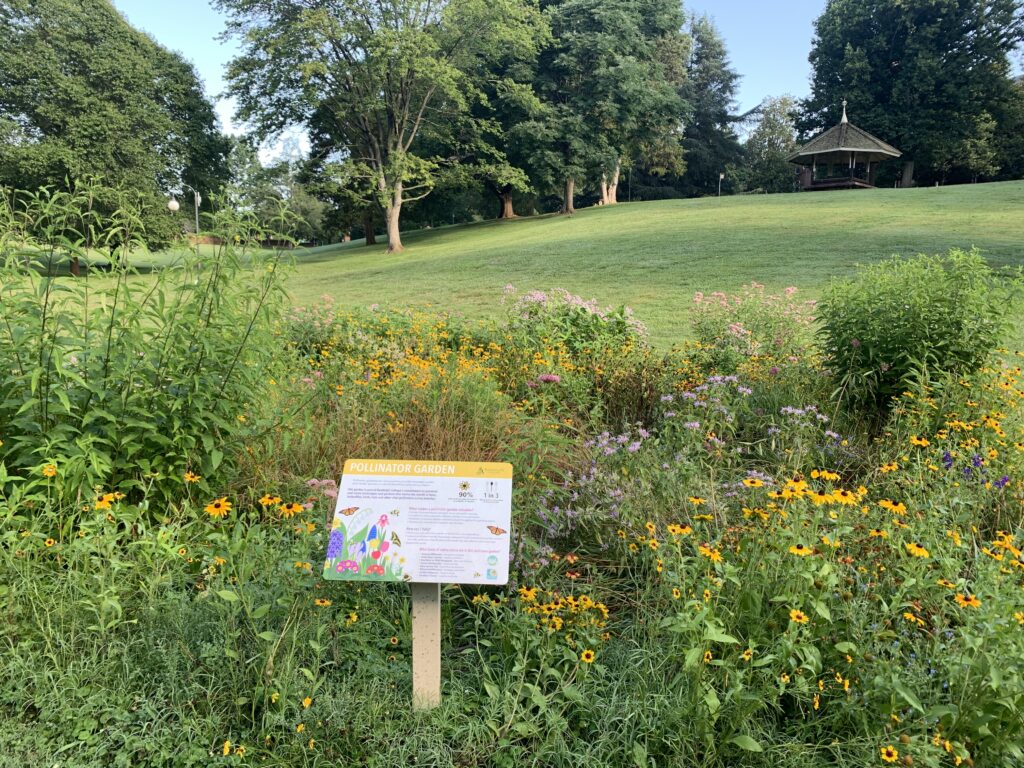
The Pollinator Garden in July 2020 when the native perennials began to take off. 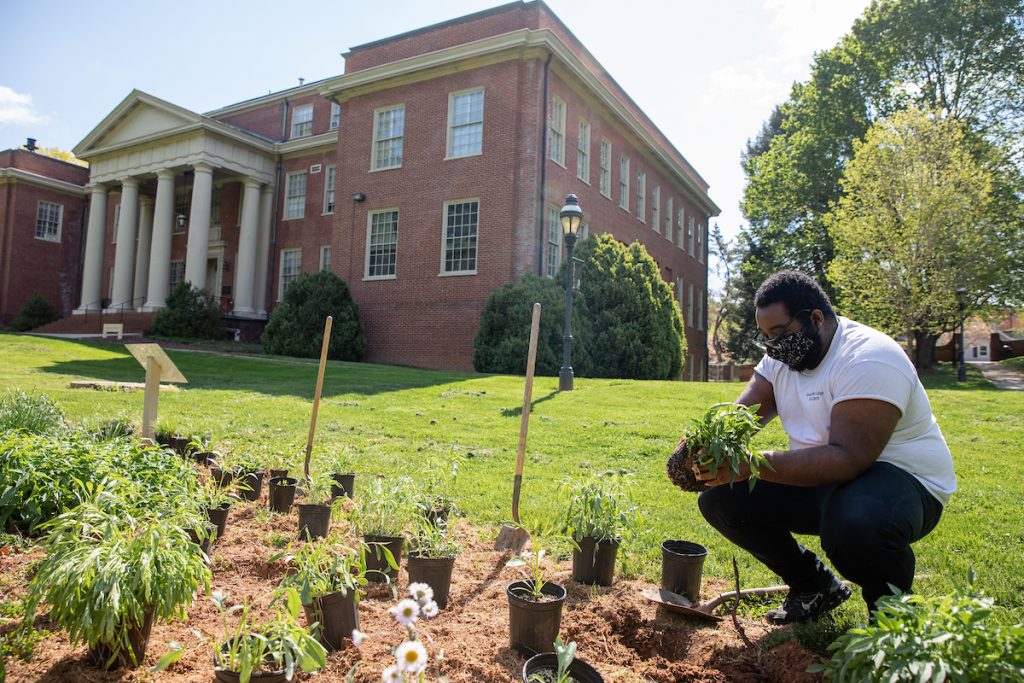
Planting the extension to the Pollinator Garden looked a little different in 2021 balancing remote and in-person engagement.
Blooming from the end of March into October, the Pollinator Garden puts on a vibrant display that attracts an assortment of visitors, including songbirds, butterflies, moths, and bees. The ever-changing view has made the garden a popular spot to take time to recharge and reconnect with nature. Seeing the community’s interest and feeling the mental health benefits from immersing themselves in nature, a group of our students decided to spearhead a new program in 2021, called Randolph Thrive. This self-navigated campus nature program is designed to encourage students, faculty, and staff to interact with natural areas on campus.
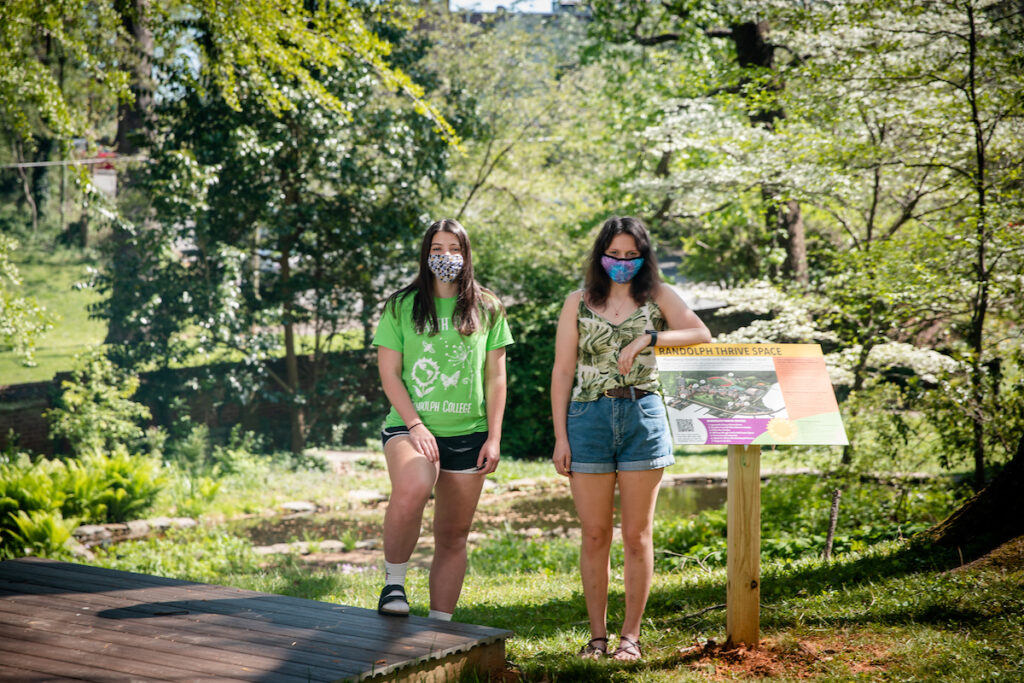
As we look to the future, we have begun the process of creating a campus-wide 5-year pollinator habitat plan. We are excited to streamline our habitat planning to include the value that our trees and garden beds contribute to supporting biodiversity. Our progress stems from empowering students to leverage the energy and ambition that they bring to campus. Consistently incorporating small changes yields considerable results over time, and the Bee Campus USA program provides the framework and resources to help you make it happen.





